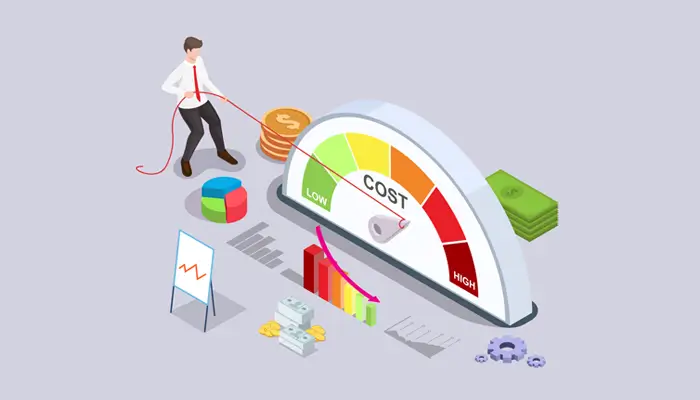Strategies for Saving Money in Times of Crisis
Anúncios
In times of hardship saving money isn’t a good practice; it becomes a crucial survival skill. With shifts, in the economy individuals and families often feel the strain on their finances emphasizing the need for a plan to preserve their resources. Taking an approach to managing finances by reviewing expenses and optimizing savings methods can strengthen ones position during uncertain times.
Saving strategies typically begin with an assessment of ones status pinpointing unnecessary expenses that can be cut back or eliminated. This involves examining bills and recurring costs as small savings across different areas can add up to significant savings overall. It also prompts reconsideration of purchases to ensure that spending aligns with financial objectives and the economic environment.
Anúncios
Establishing and maintaining an emergency fund is an aspect of financial planning particularly during crises. Financial experts often advise setting aside funds to at six months worth of living expenses. This safety net can be instrumental, in handling circumstances without having to tap into long term savings or retirement accounts thereby safeguarding ones financial well being.
Assessing Your Financial Situation
In times of uncertainty it’s crucial to review your finances. This involves a series of steps. To start with outlining a budget gives you a picture of your income and expenses helping you pinpoint areas where you can cut back on spending. It’s essential to distinguish between nonessential expenses to prioritize your financial responsibilities and make any needed adjustments based on your current situation.
Anúncios

Moreover assessing all your assets and debts lets you gauge your well being spot potential sources of cash flow and consider ways to manage or consolidate any debts. Seeking advice, from experts or credit counselors can offer guidance in creating a personalized financial plan that suits your specific needs and aspirations. By tackling hurdles and implementing sound strategies individuals can better navigate economic challenges and move towards establishing enduring financial security and strength.
Create a Crisis Budget
One of the first steps in assessing financial health during a crisis is to create a crisis budget. This should be a simplified version of one’s regular budget, specifically tailored to manage finances under strained circumstances.
- Income Sources: List all reliable income streams;
- Monthly Expenses: Document all current expenses.
By comparing these figures, individuals can determine their financial leeway and make informed decisions about where to cut costs.
Identify Essential Expenses
The important expenses are those, for basic living needs and they should be prioritized above all others. It’s important for individuals to evaluate their spending habits and classify them as either essential or optional.
Critical expenses may consist of;
- Housing (rent or mortgage);
- Utilities;
- Groceries;
- Health related expenses (medications, insurance).
On the hand non essential costs, like subscriptions or dining out might have to be decreased or removed entirely.
Evaluate Assets and Liabilities
Understanding both your assets and liabilities is essential. Assets contribute to stability while liabilities signify responsibilities that require attention.
- Assets Table
Asset Type Value Liquidity Savings $xxxx High Investments $xxxx Variable Property $xxxx Low
Liabilities List
- Credit card debt;
- Loans;
- Other outstanding bills.
Balancing assets against liabilities reveals net worth and financial resilience. It provides a clear understanding of what resources are available should there be a need to pivot financially.
Cost-Cutting Strategies
In times of uncertainty businesses need to focus on taking steps to cut costs while protecting their essential capabilities. This involves an evaluation of expenses to find areas where spending can be reduced without harming operations. Actions, like renegotiating supplier contracts streamlining processes for efficiency and introducing cost saving measures such as work setups or energy saving practices are key.

It’s also important for organizations to invest in technologies that boost productivity and lower long term expenses. Managing the workforce strategically is vital too adjusting staffing levels according to business needs and considering staffing approaches when possible. By being proactive and strategic in trimming expenses businesses can better navigate challenges ensuring their strength and sustainability, in the run.
Reduce Recurring Expenses
Organizations can achieve significant savings by scrutinizing their recurring costs. This often involves downsizing office space or transitioning to a remote work model, which reduces rent and utility expenses. Subscriptions and memberships that are not essential to business operations should be carefully evaluated and potentially discontinued.
Negotiate with Service Providers
When companies negotiate deals with their existing service providers they can often save money away. By engaging in discussions, with suppliers and service providers businesses can explore the possibility of receiving terms or discounts especially if they have an amount of business, with them or have longstanding relationships. Additionally it might be advantageous to centralize services with one provider to take advantage of pricing.
Eliminate Non-Essential Spending
The immediate suspension of discretionary spending on non-essential items is a practical step. Businesses should conduct a thorough review of their expenses to identify areas of excess or items that do not contribute to the company’s strategic objectives. This may include postponing or canceling company events, travel, or halting new projects that aren’t critical.
Revenue Enhancement Approaches
In times when money’s tight people can take steps to increase their earnings by trying out different approaches. Taking on jobs selling things they don’t use much and exploring gigs are good ways to boost income.

These actions not bring in money but also help individuals feel more empowered and resilient when facing financial difficulties. By having sources of income individuals can reduce pressure and improve their financial security making it easier to handle expenses and work towards long term financial objectives even when resources are limited.
Seek Temporary Employment Opportunities
One quick method to increase earnings is to seek out part time work. Various industries need assistance in times of crisis when specific services see a surge, in demand. Temporary positions provide flexibility and a chance to make money without an obligation.
Industries to consider:
- Retail;
- Delivery Services;
- Telecommunications.
Sell Unused Items
Many households possess items that are seldom used and could be sold for some money. Online marketplaces offer a way to connect with buyers. Valuable goods, like electronics, antiques and furniture usually attract buyers. Can notably boost ones funds.
- Popular Online Marketplaces:
- eBay
- Craigslist
- Facebook Marketplace
Explore Side Hustles
Tapping into personal skills and interests can lead to profitable side hustles. These ventures are often flexible and can be adjusted according to the individual’s schedule, making it possible to generate additional income alongside other commitments.
Examples of Side Hustles:
- Freelance Writing or Graphic Design;
- Ride-Sharing Driver;
- Online Tutoring.
Building Financial Resilience
It’s really important to be financially prepared for times and economic uncertainties. This means having plans, in place to handle your money wisely when things get rough. Being financially resilient involves a things like having emergency savings finding different ways to earn money and lowering your debts.

By getting ready of time for challenges and making smart financial choices you can lessen the impact of economic ups and downs ensuring your financial stability, in the future. Building resilience also gives you a sense of control and confidence helping you adapt to changes and succeed when faced with economic situations.
Establish an Emergency Fund
It’s important to build up an emergency fund that can cover living expenses for a months. Saving consistently even if its a little, at a time can add up. Give you financial security in the long run. This fund serves as a safety net, for costs helping you avoid going into debt when times get rough.
Invest in Financial Education
Investing in financial education helps individuals make informed decisions. Understanding budgeting, investing, and the proper use of credit can significantly enhance one’s financial resilience. Financial literacy equips individuals with the tools to navigate market volatility and to mitigate risks effectively.
Diversify Income Sources
Relying on a single income source can be risky. Individuals should explore diverse income streams, which might include part-time freelancing, investing in dividends-paying stocks or rental properties. A diversified income portfolio provides additional security, ensuring one isn’t solely dependent on their primary job for financial stability.





